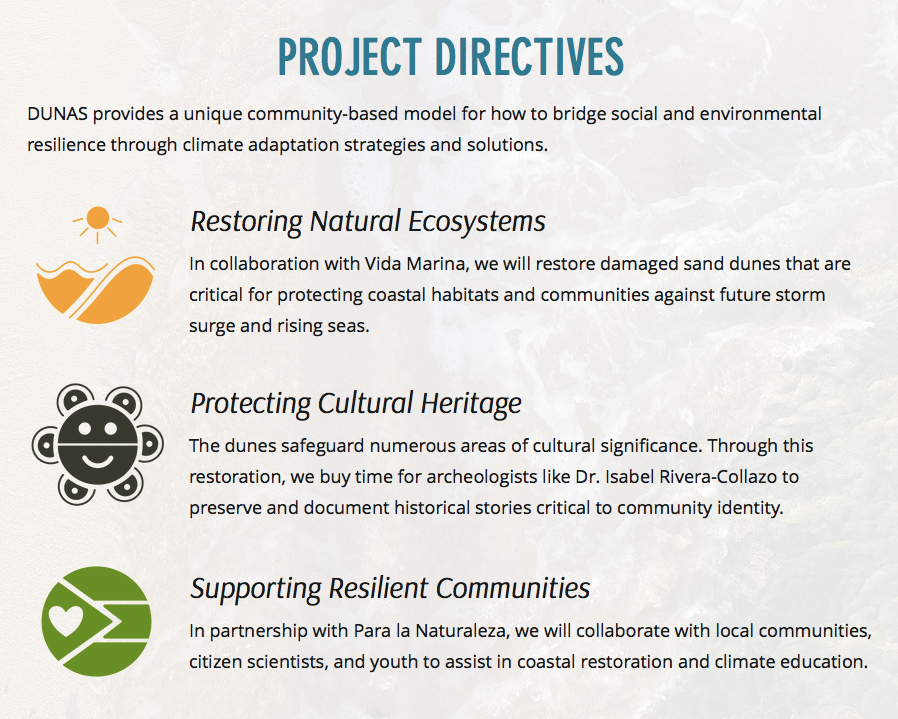Exploring the Alliance’s Newest Collaboration - DUNAS
- Climate Science Alliance

- Feb 20, 2019
- 1 min read
Updated: May 8, 2024
In September 2017, Hurricane Maria devastated Puerto Rico causing considerable impacts to both natural and human communities. Check out what the Alliance’s newest collaborative project - DUNAS - is doing to help mitigate against future climate impacts.

In September 2017, Hurricane Maria devastated Puerto Rico causing considerable impacts to both natural and human communities. For this small Caribbean island, the ramifications of global climate change are visceral and imminent — however, Puerto Rico’s is not a story of desperation but of resilience.
In collaboration with Dra. Isabel Rivera-Collazo, Climate Science Alliance (CSA), Para la Naturaleza (PLN), Vida Marina, Wildlife Conservation Society (WCS), and the Center for Climate Change Impacts and Adaptation at Scripps Institution of Oceanography (CCCIA), the DUNAS project - or Descendants United for Nature, Adaptation, and Sustainability - was convened to restore coastal dunes in northern Puerto Rico that were severely degraded by Hurricane Maria. Although sand dunes are vulnerable to damage, they are critical for protecting ecological environments, cultural artifacts, and human communities. By coming together to recreate dune features that were resilient to past extreme events we can better protect critical habitats and mitigate against future climate impacts.

To learn more about DUNAS, please visit: www.climatesciencealliance.org/DUNAS
This project was made possible through a 2018 Climate Adaptation Fund grant from the Wildlife Conservation Society (WCS) entitled, “Puerto Rico se Levanta: Learning from extreme events to build and sustain a resilient future". Support to establish the Climate Adaptation Fund was provided by a grant to the WCS from the Doris Duke Charitable Foundation.



